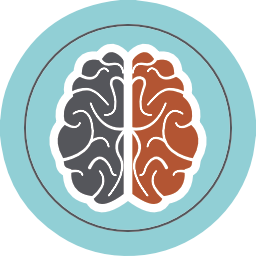
Post-Traumatic Stress Disorder or “PTSD” is a psychiatric disorder that can occur following the experience or witnessing of life-threatening events, such as military combat. Most survivors of trauma return to normal given a little time. However, some people will have stress reactions that do not go away on their own, or may even get worse over time. These individuals may develop PTSD.

People with PTSD experience three different kinds of symptoms (examples below). The first set of symptoms involves reliving the trauma in some way. The second set of symptoms involves staying away from places or people that remind a person of the trauma. The third set of symptoms includes things such as feeling on guard, irritable, or startling easily.

PTSD can be treated. Early treatment is important and may help reduce long-term symptoms. Below is a checklist of symptoms associated with PTSD. If you feel that you or someone in your family might be experiencing symptoms associated with PTSD, the UTHealth FRAP is available 24/7 to assist with the process of getting the safe and confidential help that you may need.
-
Re-experiencing Symptoms
Memories and images of the traumatic events may intrude into the minds of those with PTSD. They can occur suddenly, and without obvious cause. They are often accompanied by intense emotions, such as grief, guilt, fear, or anger. Sometimes they can be so vivid a person believes the trauma is actually reoccurring. These experiences might look like:
- Nightmares, night terrors
- Sleepwalking, sleep fighting
- Unwanted daytime memories, images, thoughts, daydreams
- Flashbacks, feeling like you're reliving the traumatic event
- Unexplained physical pain or medical conditions that seem to be associated with the event
- Suddenly feeling like you are somewhere else
- Panic attacks, undefined dread or intense fear (phobias)
-
Avoidance Symptoms
Individuals who have experienced trauma might attempt to avoid situations, people or events that remind them of their trauma. Avoidant behaviors might look like:
- Avoiding anyone or anything that reminds you of the traumatic event
- Physical/emotional reaction to things that remind you of the traumatic event
- Self-isolating, dreading social interaction
- Anxiety in crowds, traffic
- Despair, depression, sadness, emptiness, loneliness
- Inability to trust others
- Questioning or abandoning faith, feeling of being betrayed or abandoned by God, mad at God
- Very reluctant to talk about your traumatic event
- Lack of interest in employment, recreation, former hobbies, sex, or exercise
- Relationships that were once close and even intimate are now strained, cold, distant, requiring too much energy to maintain
- Emotional numbness, flat, can't get happy or sad, 'dead inside'
- Substance abuse to 'numb' yourself (drugs, alcohol, food)
- Suicidal thoughts or attempts
- Physical fatigue
- Disregard for personal care, hygiene, or nutrition
-
Arousal Symptoms
Fearing further trauma, PTSD sufferers might feel like they are always on the alert. These experiences might look like:
- Anger, irritability, “short fuse,” fits of rage
- Hypervigilance (always on guard)
- Feeling as if you need to be armed with a weapon at all times
- Easily startled, react to loud noises, jumpy
- Reduced cognitive ability (slow thinking, confusion, poor problem-solving or concentration)
- Poor short-term memory, forgetting simple tasks or often misplacing items
- Trouble falling asleep or staying asleep, insomnia
- Night sweats
- Accelerated heart rate, rapid breathing, heart palpitations for no apparent reason
- Fear of becoming violent or actively becoming violent, provoking fights
- Homicidal thoughts
- Anniversary reaction (become anxious nearing the monthly or yearly anniversary of the traumatic event)
- Engaging in adrenalin-producing activities (taking risks, speeding, gambling, other activities that get you hyped-up)